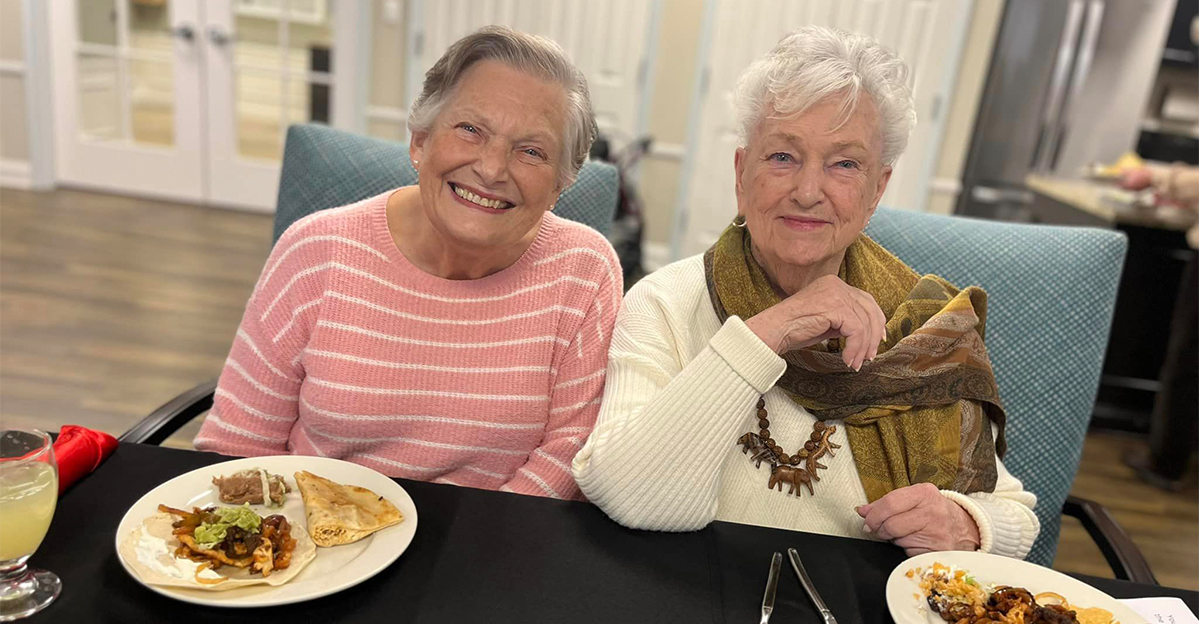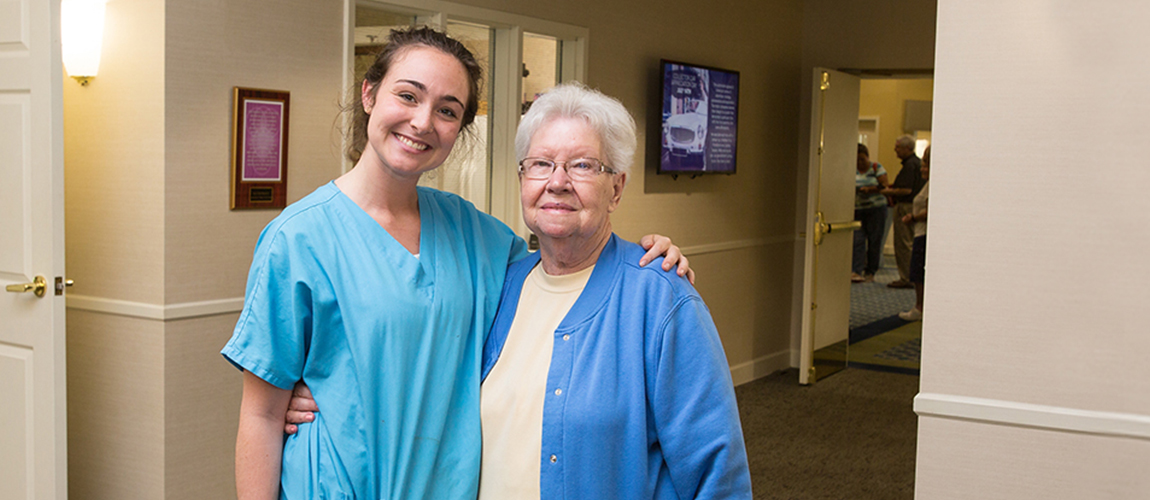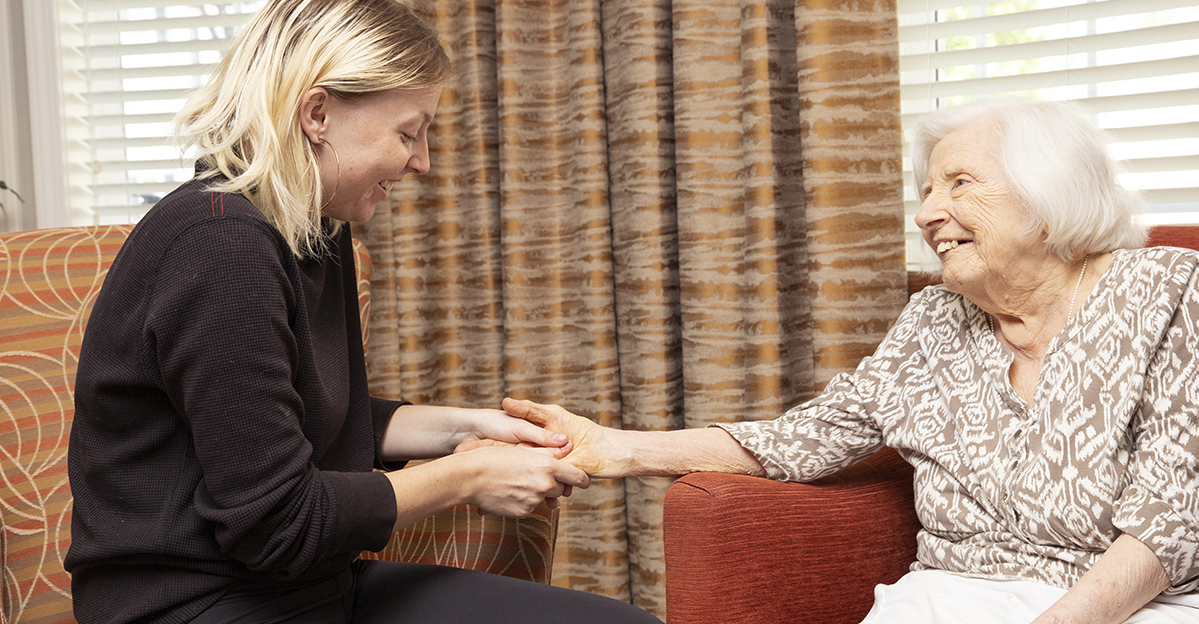As we age, it’s normal for our appetite to decrease. This can happen for several reasons, including changes in metabolism, medications, or even the natural aging process. For seniors, losing interest in food or not feeling hungry can lead to missing out on important nutrients needed for overall health and well-being.
In this blog, we’ll explore some common reasons for loss of appetite in seniors, and share some practical tips on how to help improve appetite for you or an older loved one.
Common Causes of Appetite Loss in Seniors
By understanding the common causes behind lack of appetite in seniors, we can take steps to address them and help our loved ones maintain a healthy and well-balanced diet. Here are some common causes of loss of appetite among older adults:
- Slower Metabolism: It’s completely normal for our metabolism to slow down as we grow older. This may cause your loved one to feel less hungry or get full more quickly, even if they haven’t eaten much. While this is a natural part of aging, it’s important to ensure that a reduced appetite doesn’t result in poor nutrition.
- Medications: Some medications can cause side effects like nausea, dry mouth, or changes in taste. These side effects may make food less appealing or even cause a loss of appetite.
- Dental Problems: Issues with teeth or gums can make eating uncomfortable or even painful, which can cause individuals to avoid certain foods or skip meals altogether.
- Chronic Illnesses: Certain long-term health conditions can affect appetite. In some cases, the illness itself may reduce the desire to eat, while in other cases, it may be the treatments or medications that are responsible.
- Emotional and Mental Health: If a senior is feeling sad, isolated, or stressed, they may lose the motivation to prepare meals or eat regularly.
- Changes in Taste and Smell: Sometimes, the natural process of aging can dull our senses of taste and smell, making food seem less flavorful or enjoyable.
Health Risks Associated With Poor Appetite in Seniors
While a drop in appetite may be normal for older adults, not addressing the lack of appetite can lead to serious health problems, such as:
- Malnutrition: When seniors don’t eat enough, they may not get the nutrients their bodies need to stay healthy.
- Muscle Loss: Decreased appetite can result in a lack of protein intake, leading to muscle loss (sarcopenia). Over time, this can affect mobility and even increase the risk of falls among seniors.
- Weakened Immune System: Inadequate nutrition can impair the body’s ability to defend against illness, making older adults more vulnerable to infections.
- Dehydration: Seniors with reduced appetites may also drink less water, leading to dehydration. This can cause dizziness, confusion, and further health complications, like urinary tract infections.
- Cognitive Decline: A lack of proper nutrition can affect brain health, leading to issues such as memory loss, confusion, or worsening of other health conditions.
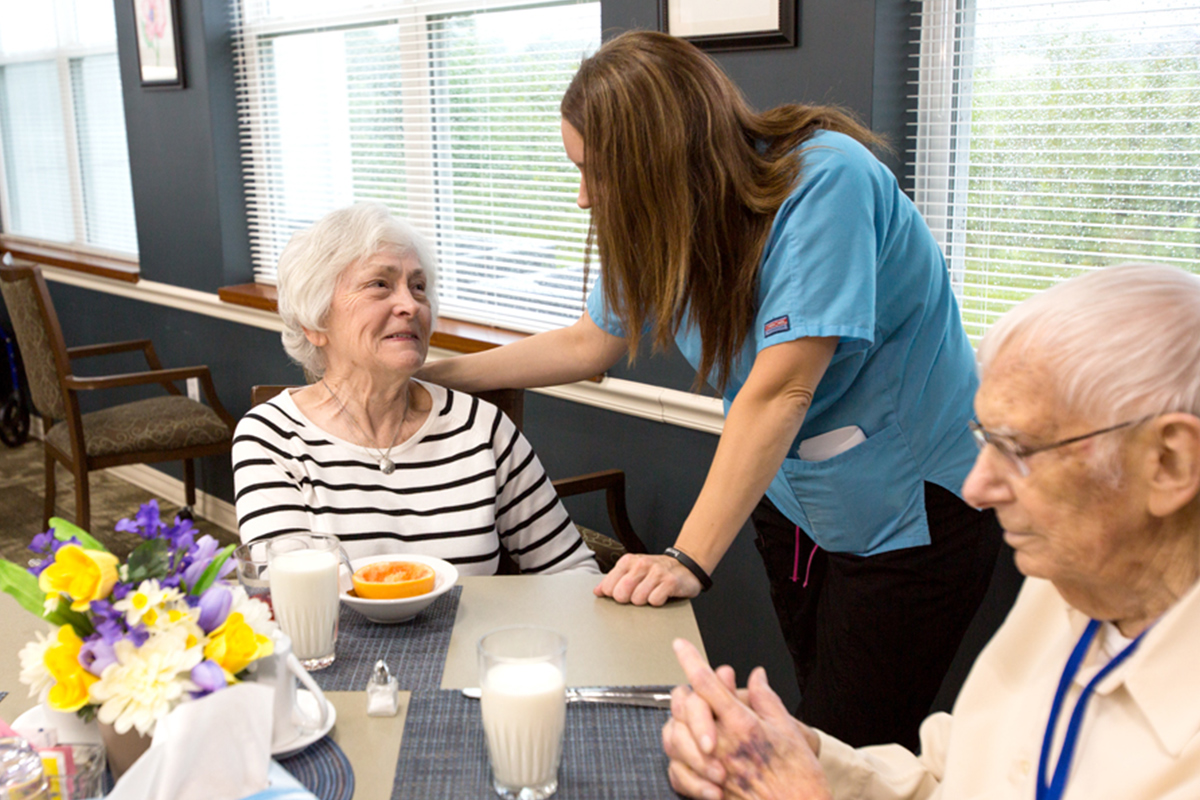
Recognizing Signs of Appetite Loss in Older Adults
It’s important to recognize when your loved one is eating less than usual, as it could be a sign of appetite loss. Here are some key signs to look out for:
- Eating Smaller Portions: If they start eating smaller amounts than usual or regularly leave food on the plate, this may indicate a reduced appetite.
- Skipping Meals: Skipping meals or saying they’re “not hungry” more often than usual can be a sign of appetite loss.
- Unexplained Weight Loss: Sudden, unexplained weight loss might indicate that your loved one isn’t eating enough, especially if they don’t have any underlying health conditions
- Lack of Interest in Food: If food no longer seems enjoyable or they’re not showing interest in their favorite meals or snacks, this could be a sign of a decreased appetite.
Strategies to Improve Appetite for Seniors
If you or someone you care for is struggling with a poor appetite, here are some simple and practical tips to help make eating more enjoyable:
- Eat Small, Frequent Meals: Instead of three large meals, try eating smaller portions throughout the day. This can make food less overwhelming and easier to manage, while still providing the nutrients your body needs.
- Focus on Nutrient-Rich Foods: Try to prioritize foods that are high in nutrients, even in small amounts. Items like eggs, yogurt, nuts, and soft fruits provide essential vitamins, minerals, and protein.
- Make Meals Appealing: Pay attention to how food looks, smells, and tastes. Brightly colored foods, pleasant aromas, and adding herbs or spices can make meals more appealing for some older adults.
- Stay Hydrated: Drinking enough water is important, but try not to drink too much right before meals. This can make you feel full and less interested in eating. Sipping water throughout the day is a good way to stay hydrated without affecting your appetite.
- Incorporate Physical Activity: Gentle exercises, like walking or stretching, can help stimulate appetite and improve overall well-being.
- Consider Snacks: Healthy snacks, like cheese, smoothies, or fortified cereals, can help provide extra calories and nutrients between meals, especially if you’re not eating much at mealtimes.
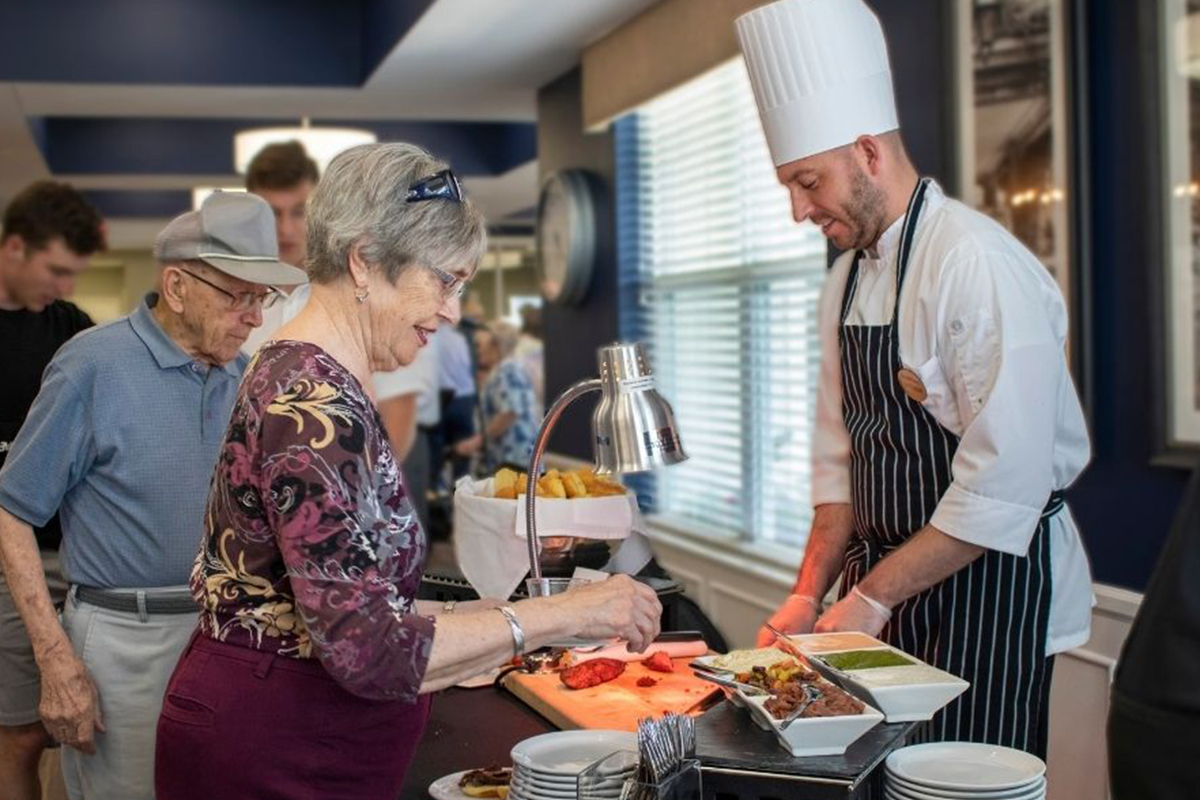
How Senior Living Communities Can Help Manage Appetite Issues
Senior living communities offer a comfortable and supportive environment to help residents stay healthy, including help with eating well. Here are some key ways they can help manage the loss of appetite in seniors:
- Nutritious, Tasty Meals: Most senior living communities provide balanced, nutritious meals that are prepared by chefs who understand the dietary needs of older adults. Some communities offer a wide variety of delicious options to help make mealtimes enjoyable and appealing for residents.
- Social Dining: Eating with others can make meals more enjoyable and help combat loss of appetite in seniors. Senior living communities often encourage social dining, where residents can gather and eat together, turning mealtime into a pleasant social activity.
- Personalized Assistance: If a resident is struggling with appetite, the employees in senior living communities can work with them to understand their specific needs. They may suggest small, frequent meals or snacks, offer foods that are easier to eat, and even help ensure that any medical conditions or medications affecting appetite are properly managed.
- Regular Monitoring: Caregivers in senior living communities can regularly monitor a resident’s health, including their eating habits. If there are concerns about weight loss or poor nutrition, they can act quickly to provide support or involve healthcare professionals.
When to Consult a Doctor for Appetite Loss
It’s normal for our appetite to change as we age, but if you or a loved one are eating much less than usual or skipping meals regularly, it may be time to see a doctor. Loss of appetite in seniors can be a sign of an underlying health issue that needs attention.
It’s generally a good idea to consult a doctor if:
- Appetite loss lasts more than a few days
- There’s noticeable weight loss
- You or your loved one feels tired or weak all the time
- Eating or drinking causes discomfort, like pain or nausea
- You or your loved one have difficulty swallowing
Healthy and Hearty Meals at StoryPoint Group Communities
At StoryPoint Group communities, we understand how important a healthy diet is for our residents. That’s why we offer a wide range of delicious, chef-prepared meals that are both nutritious and flavorful. These meals are designed to give our residents the energy they need to make the most of each day. We’d love for you to experience what life is like with us. Contact us or stop by to enjoy a meal in one of our communities. We can’t wait to welcome you!








